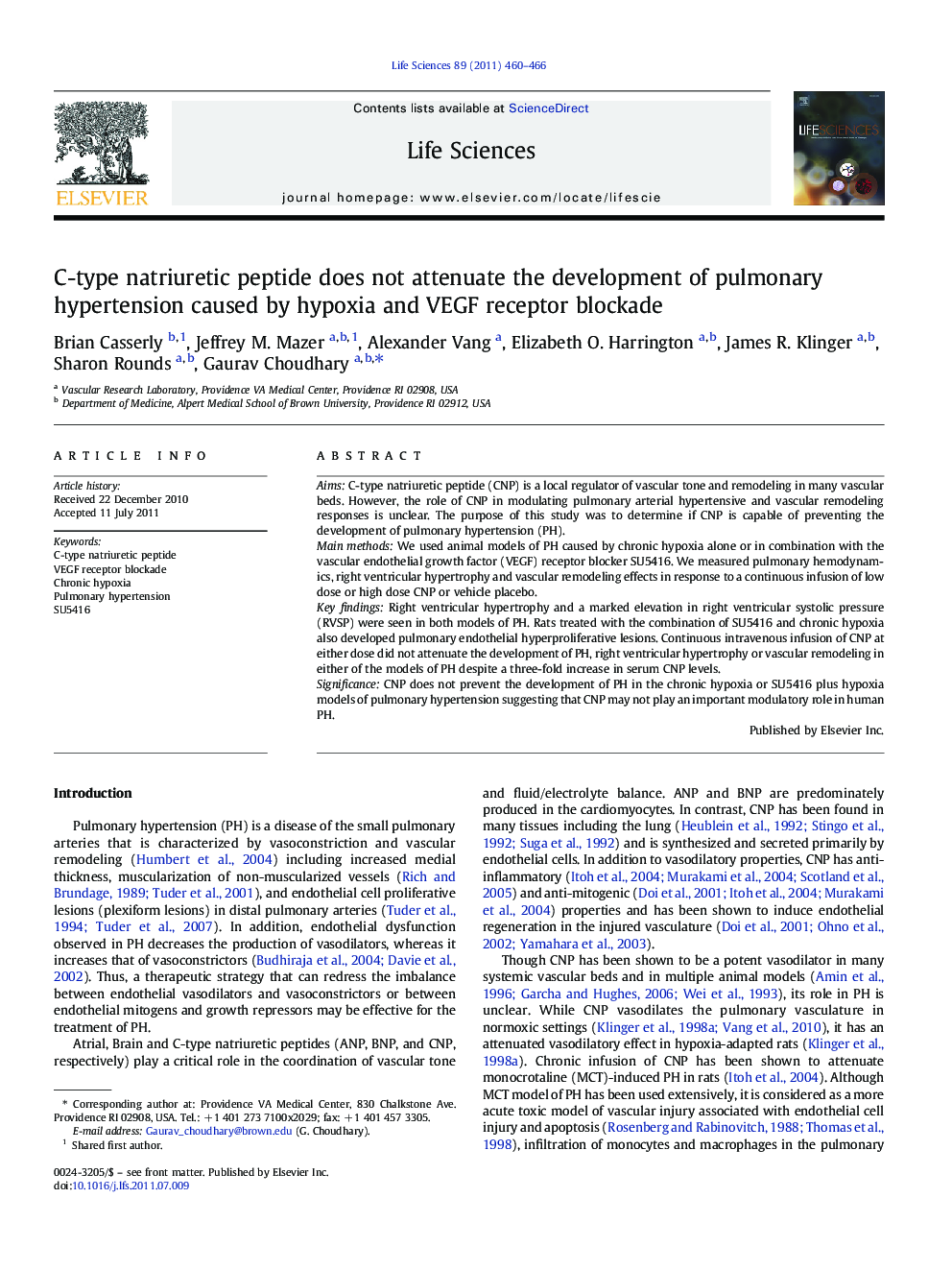| Article ID | Journal | Published Year | Pages | File Type |
|---|---|---|---|---|
| 2551780 | Life Sciences | 2011 | 7 Pages |
AimsC-type natriuretic peptide (CNP) is a local regulator of vascular tone and remodeling in many vascular beds. However, the role of CNP in modulating pulmonary arterial hypertensive and vascular remodeling responses is unclear. The purpose of this study was to determine if CNP is capable of preventing the development of pulmonary hypertension (PH).Main methodsWe used animal models of PH caused by chronic hypoxia alone or in combination with the vascular endothelial growth factor (VEGF) receptor blocker SU5416. We measured pulmonary hemodynamics, right ventricular hypertrophy and vascular remodeling effects in response to a continuous infusion of low dose or high dose CNP or vehicle placebo.Key findingsRight ventricular hypertrophy and a marked elevation in right ventricular systolic pressure (RVSP) were seen in both models of PH. Rats treated with the combination of SU5416 and chronic hypoxia also developed pulmonary endothelial hyperproliferative lesions. Continuous intravenous infusion of CNP at either dose did not attenuate the development of PH, right ventricular hypertrophy or vascular remodeling in either of the models of PH despite a three-fold increase in serum CNP levels.SignificanceCNP does not prevent the development of PH in the chronic hypoxia or SU5416 plus hypoxia models of pulmonary hypertension suggesting that CNP may not play an important modulatory role in human PH.
